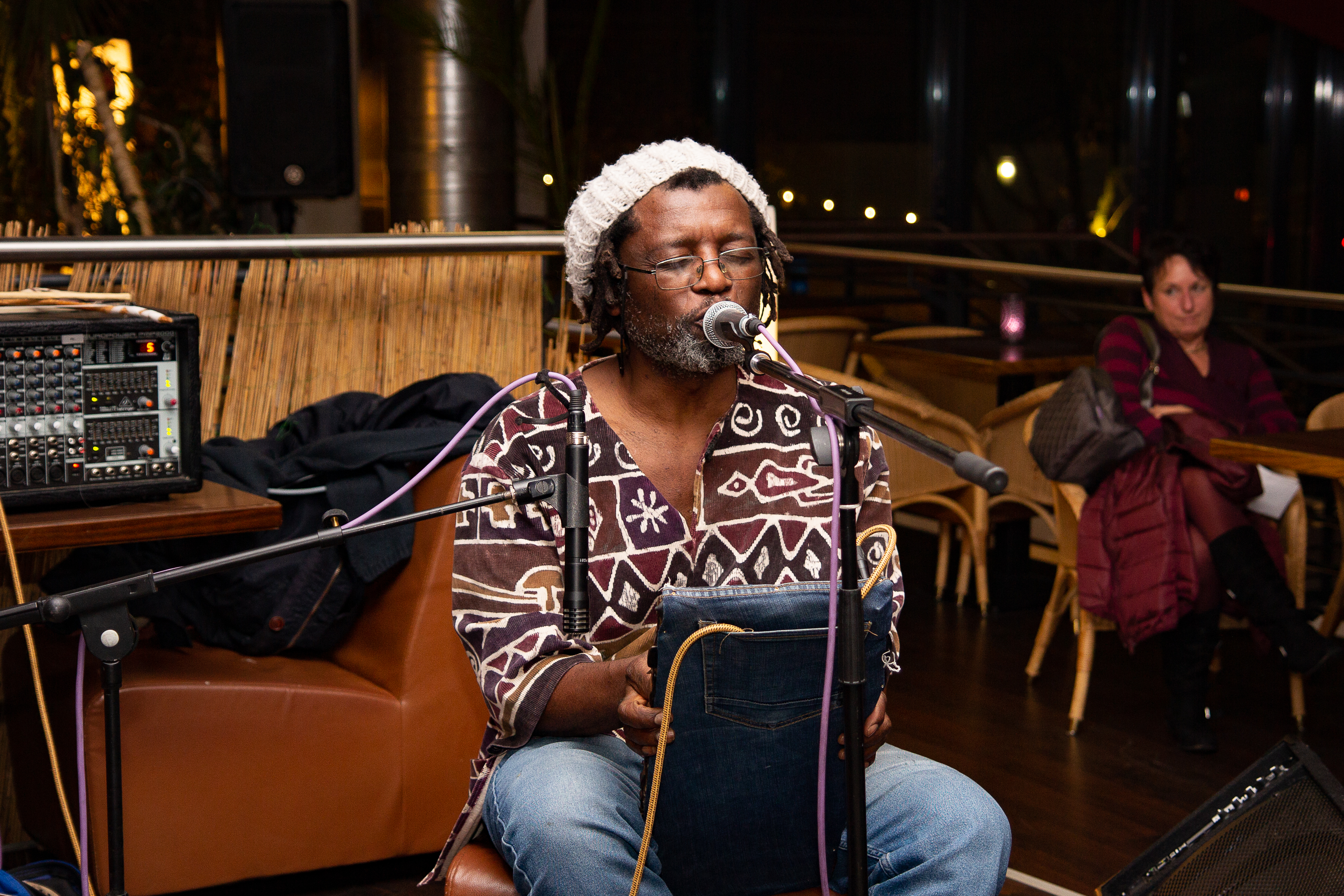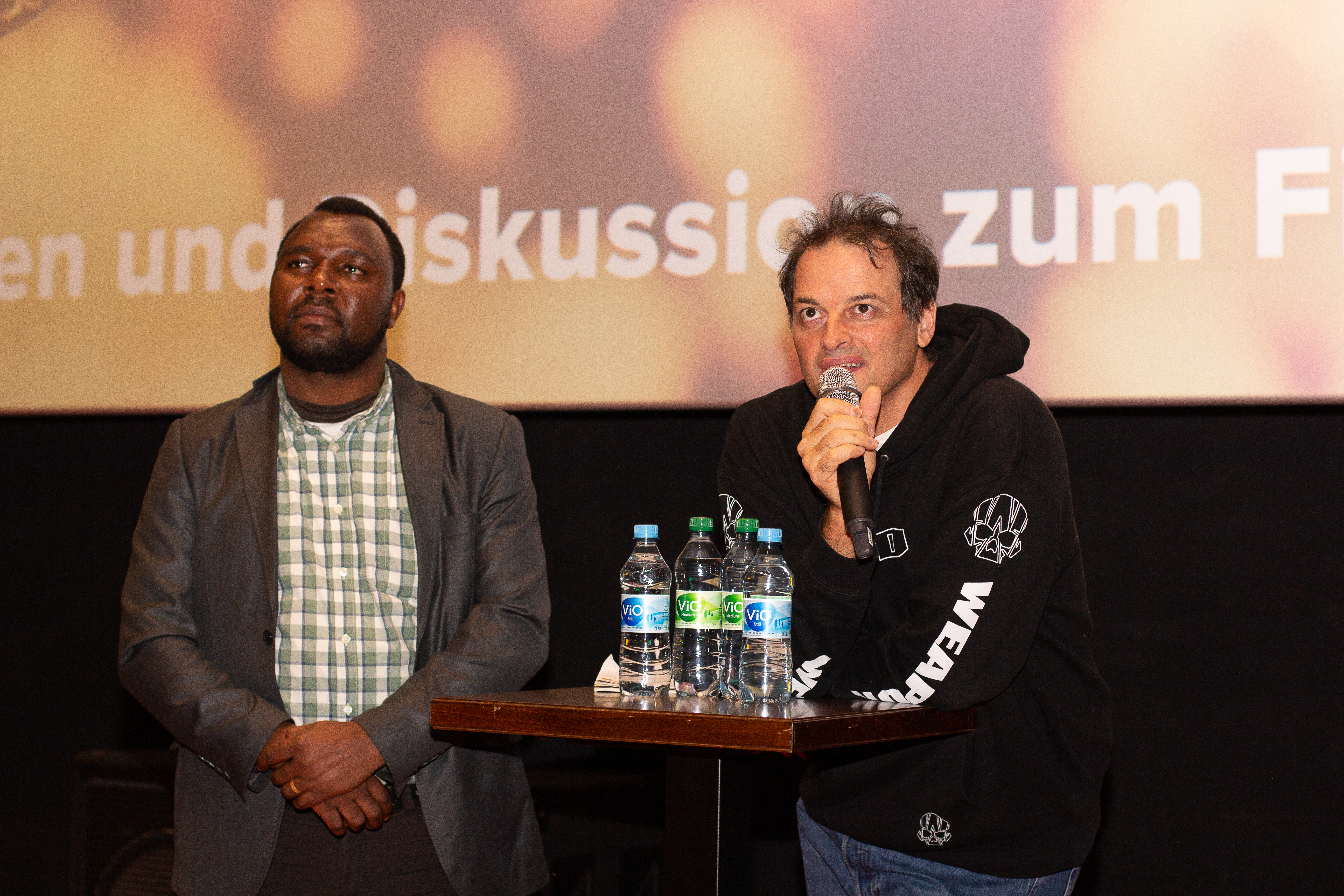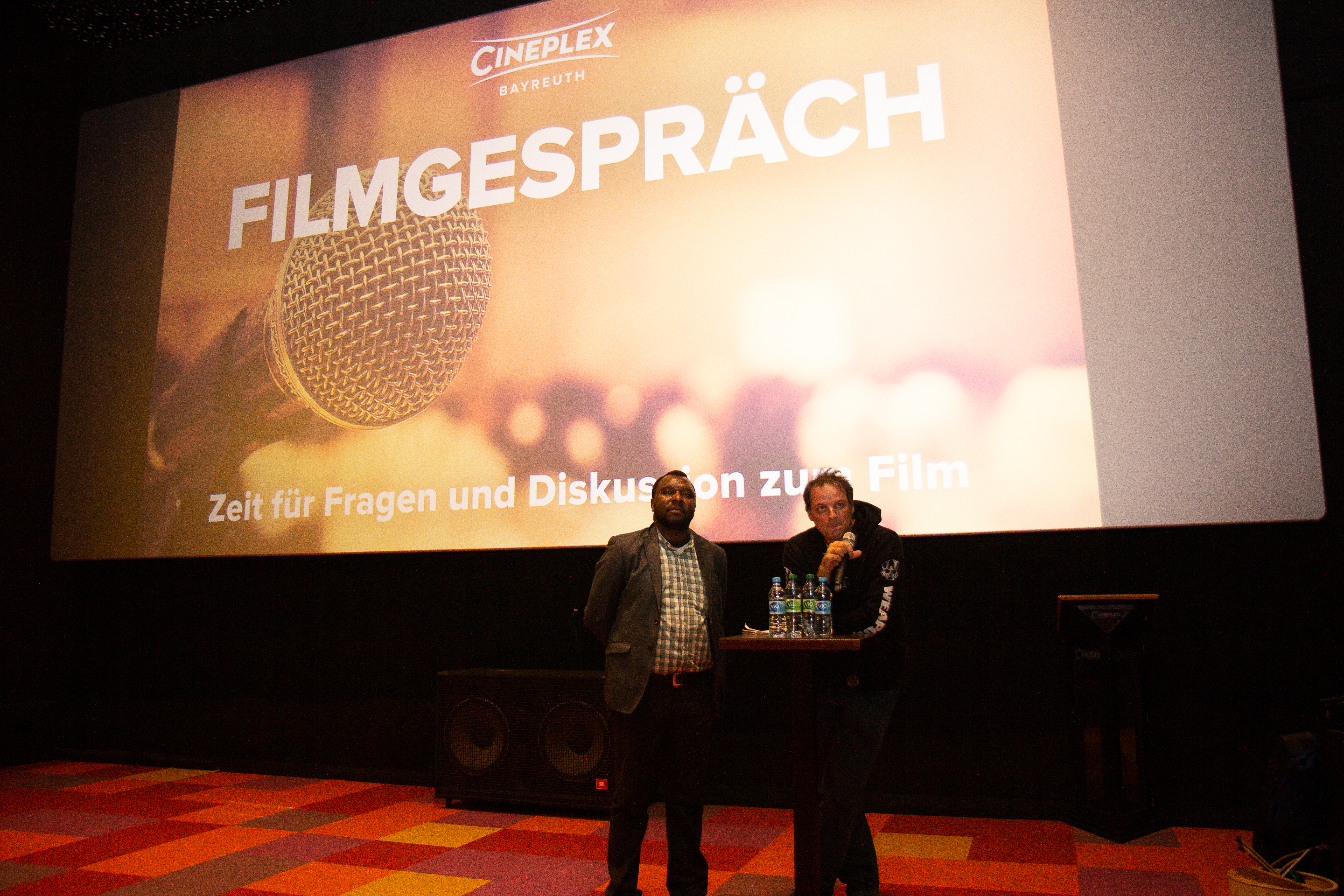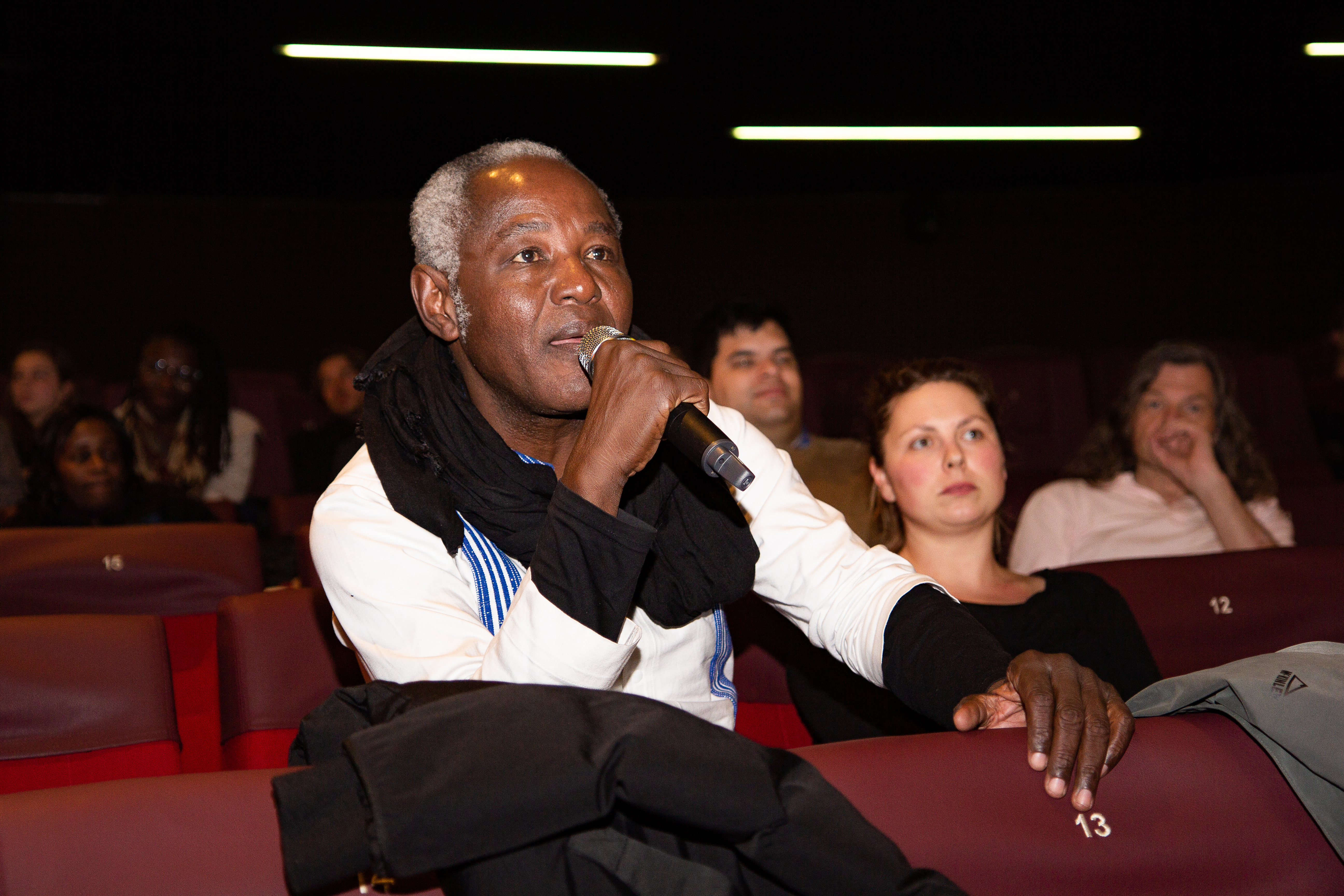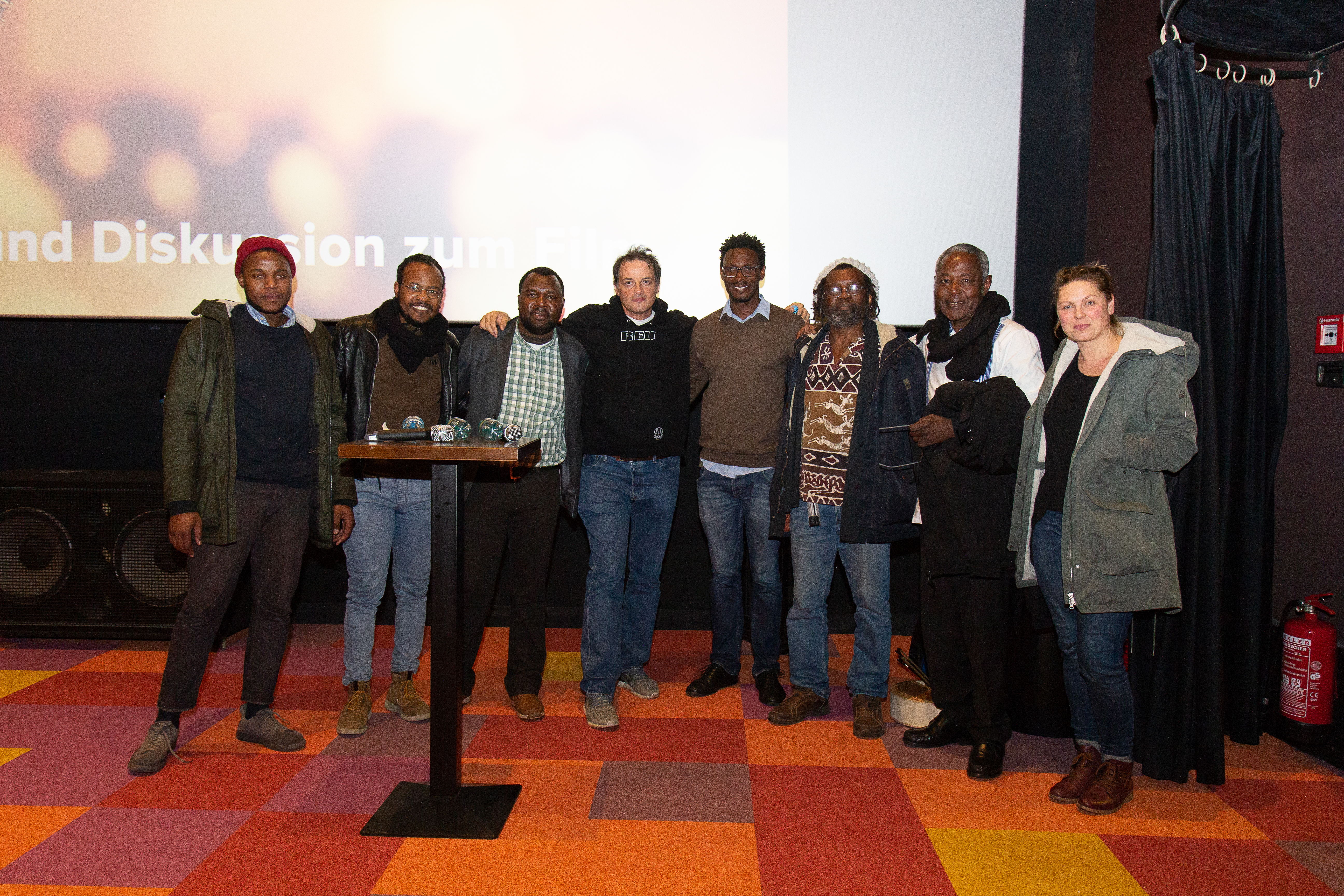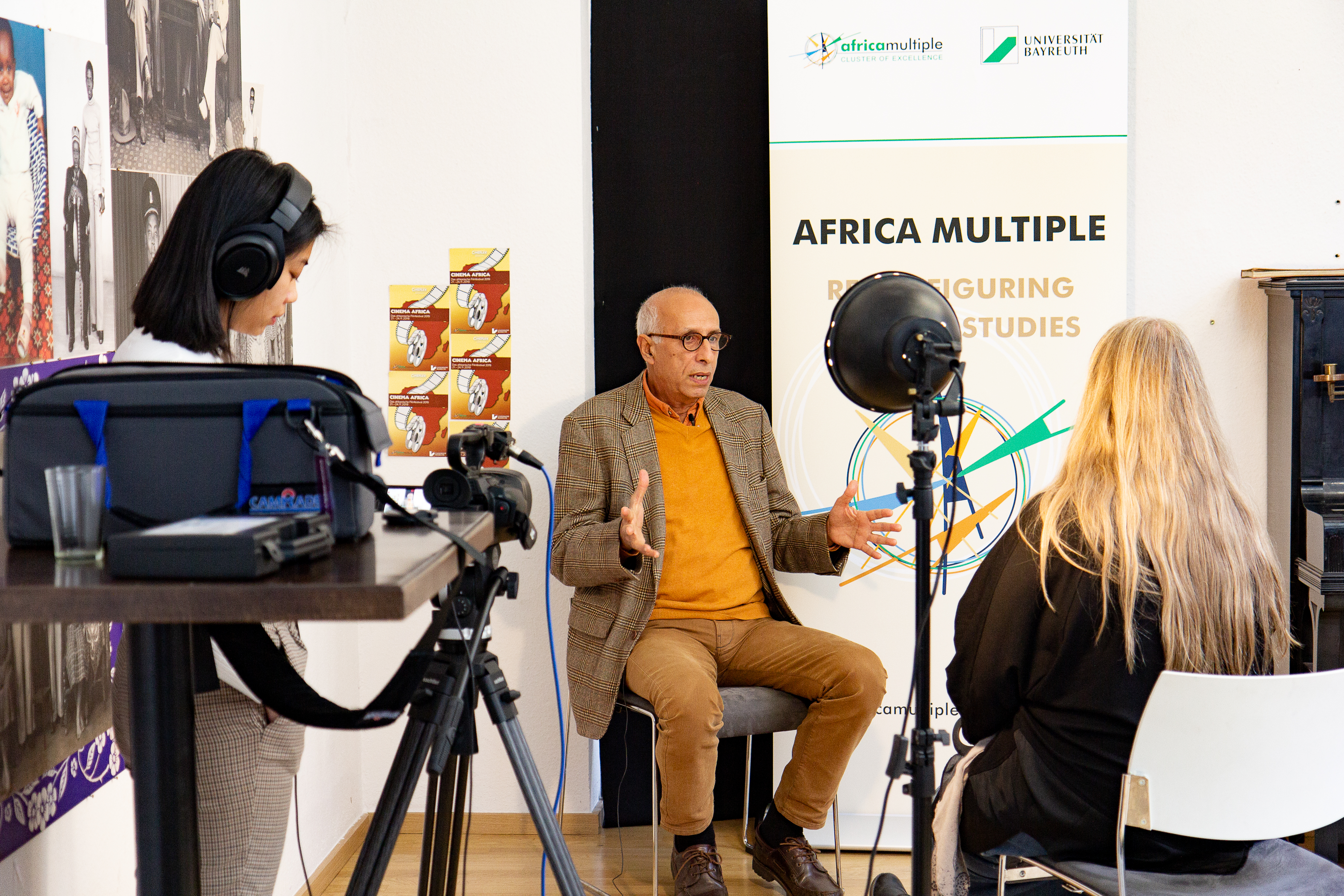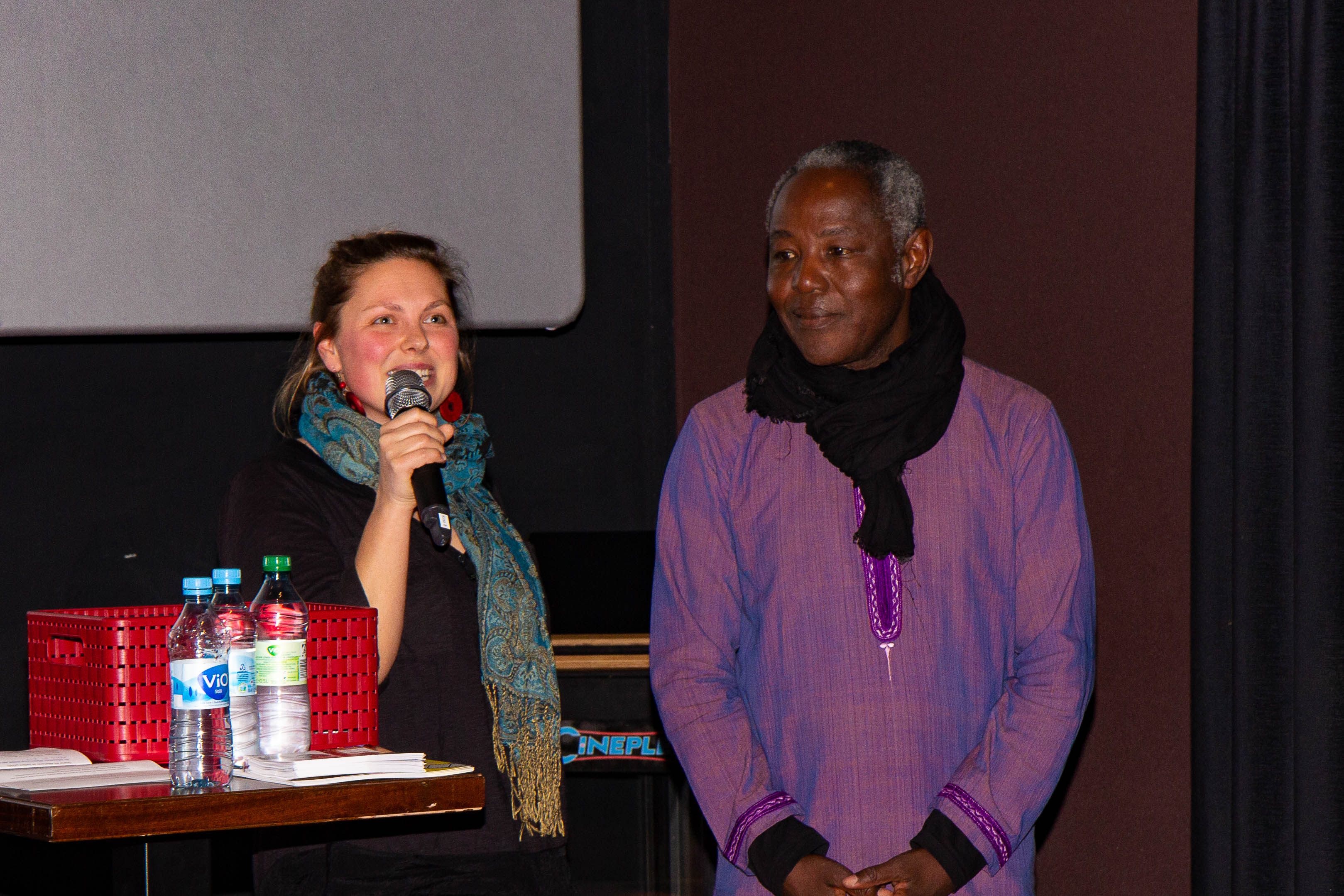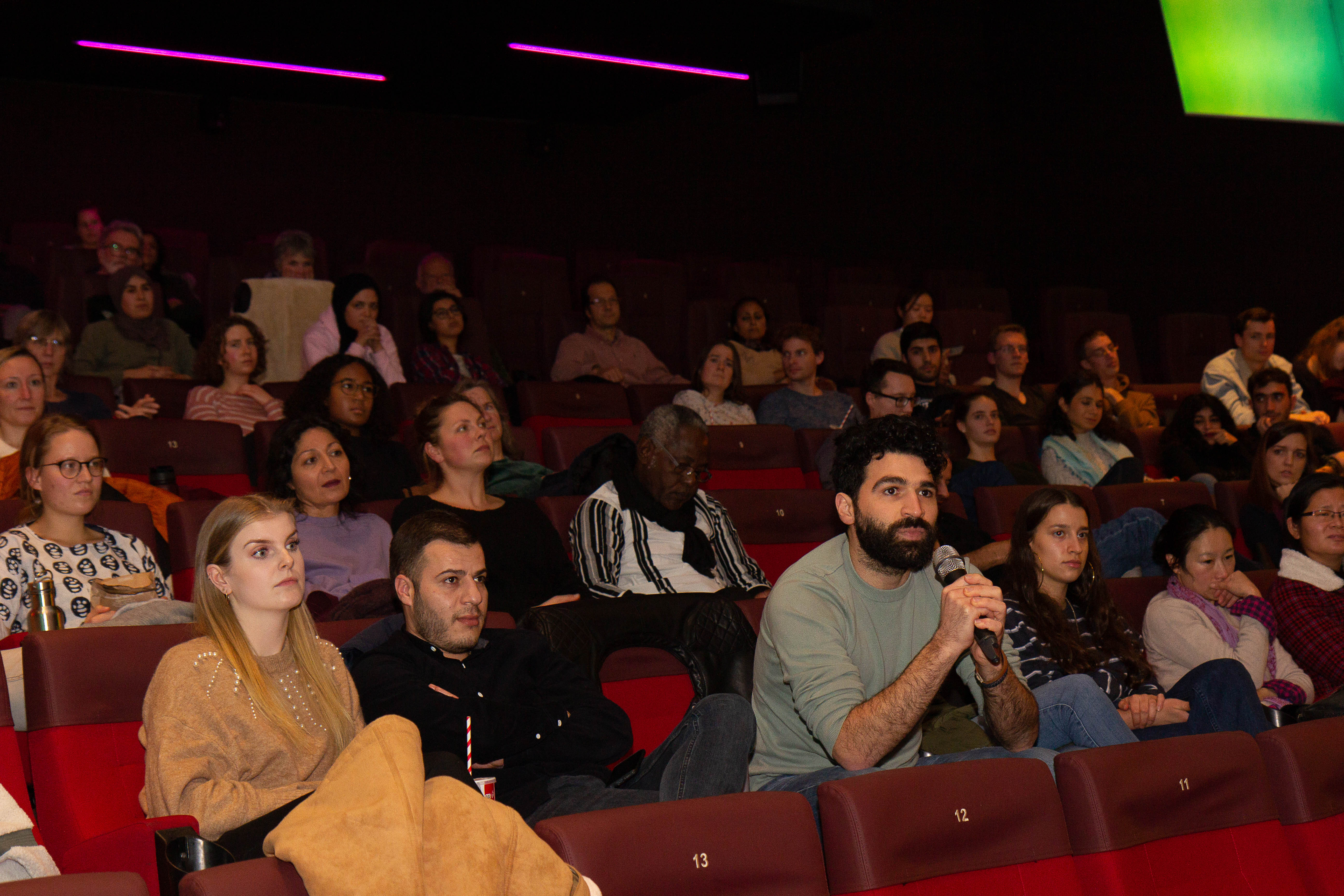News
A cinematographic journey across the African continent: Cinema Africa in Bayreuth
26.11.2019
The film festival “Cinema Africa 2019” brought four extraordinary movies to Bayreuth taking the audience on a unique cinematographic journey across the African continent. Around 280 people attended the four-day film festival and had a chance to discuss the films with each of the directors. The twelfth edition of “Cinema Africa” took place between 21 and 24 October 2019.
Coming up the stairs of Bayreuth’s Cineplex movie theatre, ticketholders could already make out sounds highly unusual for this location. For the opening of this year’s film festival “Cinema Africa”, the Mozambican musician Luka Mukhavele had set up station just in front of the door of “Broadway” –the largest movie hall of the theatre. With a big array of handmade traditional instruments Mukhavele performed music that set the right tone for the first film of the four-day event.
“Redemption is what comes after the film”
With the Mozambican tunes still resonating in their ears, the audience soon settled into their seats and got visually transported to Maputo, the capital of Mozambique. “Resgate – Redemption” let them dive into a part of town where gangs rule and crime is omnipresent. Following protagonist Bruno, who after having spent some time in jail returns home with best intentions to take care of his family, the audience is taken on a fast-paced and heart-breaking emotional rollercoaster ride. They feel with the young man, whose financial pressures soon pile up and prompt him to follow down the path that he was determined to leave: He gets involved with the same crowd that led him to prison in the first place and Bruno’s life as a criminal takes its course. The leading man is portrayed by Gil Alexandre As Antonio Forjaz, the movie’s producer and cinematographer, explained: “Gil was our mechanic. We were looking for someone to play Bruno and weren’t successful, when suddenly we looked at Gil Alexandre and thought ‘This is our guy’”. He went on talking to the audience about how accurately the current situation in Mozambique is depicted in the film. “The idea for the movie came about when there were a lot of kidnappings going on in Mozambique”, the producer explained. “We wanted to make a movie about a kidnapping, it turns out we made a movie about Bruno.” And when asked about the title, Forjaz said: “Redemption is what happens with the character when the film is over.”
Cinema Africa’s twelfth edition
For the twelfth time, the Chair of Romance and Comparative Literature at the University of Bayreuth had invited African filmmakers to present their work to the Bayreuth audience. “Art – and especially the cinematographic expression – is an important means in transmitting original stories from the continent that show the large diversity across the continent and counter-balance the often one-sided reportages on Africa in German/European media”, Prof. Dr. Fendler explained her commitment. Prof. Fendler, who also acts as co-speaker of the newly founded Africa Multiple Cluster of Excellence, was able to get the support of the Cluster for her longstanding project. “Cinema Africa has always done what the Cluster’s agenda now stipulates: to connect the Arts and the academic world with a larger public making possible a fruitful multidirectional exchange.”
A tale of one who travelled …
During that exchange, the Arts and the scholar world still sometimes collide. After the screening of the film “Duga – Les Charognards“ set in Burkina Faso was over, the first question aimed at Abdoulaye Dao, the movie’s director, was: “But why didn’t you show more of the socio-economic troubles of Burkina-Faso?”. It had not been his intention to make a documentary, but a work of fiction, the filmmaker replied, adding: “I just wanted to tell a story.” In fact, the story he told had all the elements of a fable. A tale of one who travelled in order to find a respectful burial site for his best friend Pierre. During his journey with the corpse, protagonist Rasmané is rejected by the eldest of Pierre’s village as well as by the Christian and the Moslem church but finds help and support in the most unusual people like highwaymen and the scallywags of his village, the so-called “The Vultures”. Although the movie is told as a satirist tale, the director was inspired by a real life event: “A friend of mine was indeed having trouble to get a proper burial for someone, that’s how I got the idea for the film”, the director explained during the lively Q-and-A. The story struck a nerve with the audience not only in Bayreuth: it was awarded two prices at the famous FESPACO (Festival Panafricain du Cinéma et de la Tuélévision de Ouagadougou) 2019.
Ending with a bang
Another award-winning movie was presented on Saturday, the third day of this year’s “Cinema Africa”: “Fatwa” had been awarded “Best film” of the “Journées Cinématographiques de Carthage 2018”. In this movie, filmmaker Mahmoud Ben Mahmoud takes the audience on a suspenseful investigation journey when Brahim returns to Tunisia from France, because his son Marouane had died in an accident. The grieving father is trying to figure out what had happened to his beloved son. He soon finds out about Marouane’s ties to the Salafist community and about his ex-wife’s troubles with the same crowd. Due to her book criticising religious practices she was given the status of Fatwa. The movie ended with a bang leaving the audience gasping while the end credits rolled. Subsequently, the shaken audience was full of praise for the director, who had managed to create a well-crafted polyphonic and differentiated depiction of the situation in Tunisia from that time.
Experiencing the mercy of the jungle
The last film of this year’s festival was shown on Sunday night. “La miséricorde de la jungle” by director Joël Karakezi. The young director had wanted to make a film about the atrocities of the first Kongo war as he himself witnessed his village being burned down and his father being killed when he was just a boy. The film transported the audience to the jungle in Central Africa where the soldiers Sergeant Xavier and Faustin get separated from their battalion and have to make it back to camp through enemy and rebel lines. Facing all the dangers of the jungle and even a gorilla they have to redefine their beliefs and affiliations. In the Q and A that followed, the charismatic director talked about the difficult process of financing film that was only his second and shooting in the jungle including the scene with the gorilla. It was worth it, however, the film had been awarded the “Etalon d’Or” at FESPACO naming it the best African movie of 2019 and making Karekezi one of the shooting stars of the African cinema.
Planning ahead for 2020
“This year’s Cinema Africa was a great success”, Prof. Dr. Fendler summed up the four-day festival on Sunday evening. To respond to the demand of more awesome and surprising narratives, there will be two long film nights with three African movies each, one on December 18 2019 and one in January 2020.” (sg)
- For more information on the programme, click here


